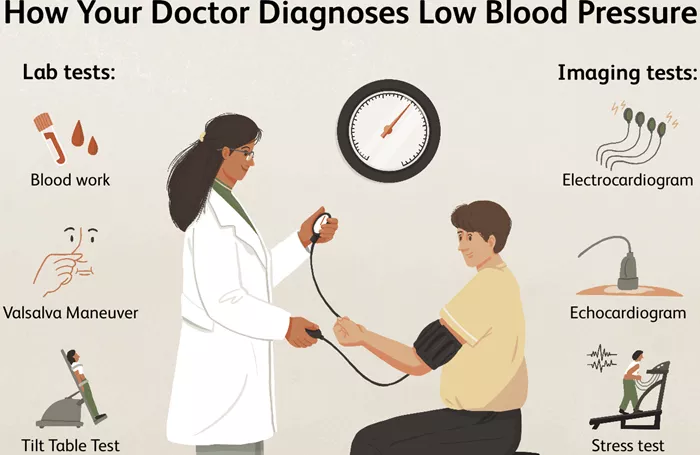Low blood pressure, also known as hypotension, is a condition where the blood pressure in the arteries is abnormally low.
While it is often considered less dangerous than high blood pressure, it can still lead to significant health issues, especially if it causes symptoms. Teenagers can experience low blood pressure for various reasons, and understanding these causes is crucial for proper management and treatment. This article delves into the ten primary reasons why teenagers may have low blood pressure, providing insights into each cause and how it affects adolescent health.
10 Reasons Why Teenagers Have Low Blood Pressure
1. Dehydration
Dehydration is one of the most common causes of low blood pressure in teenagers. When the body loses more fluids than it takes in, it can lead to a decrease in blood volume. This reduction in blood volume causes a drop in blood pressure.
Teenagers, who are often active and may not prioritize drinking enough water, are particularly at risk. Symptoms of dehydration-induced hypotension include dizziness, fainting, and weakness. Ensuring adequate fluid intake, especially during hot weather or physical activities, can help maintain normal blood pressure levels.
See Also: What Are The Causes of Postural Hypotension
2. Nutritional Deficiencies
Teenagers require a balanced diet to support their rapid growth and development. A lack of essential nutrients, particularly iron, vitamin B12, and folic acid, can lead to anemia, a condition where the body does not have enough healthy red blood cells. Anemia can result in low blood pressure because there is less oxygen being transported to the body’s tissues, leading to symptoms such as fatigue, dizziness, and shortness of breath. Encouraging a diet rich in fruits, vegetables, lean proteins, and whole grains can help prevent nutritional deficiencies and maintain healthy blood pressure levels.
3. Endocrine Disorders
The endocrine system, which includes glands that release hormones, plays a crucial role in regulating blood pressure.
Teenagers with endocrine disorders such as Addison’s disease, hypothyroidism, or adrenal insufficiency may experience low blood pressure. Addison’s disease, for example, results from the adrenal glands not producing enough cortisol and aldosterone, hormones essential for maintaining blood pressure. Symptoms of endocrine-related hypotension can include fatigue, muscle weakness, and weight loss. Proper diagnosis and treatment of these disorders are essential for managing blood pressure effectively.
See Also: what are symptoms of too low blood pressure
4. Medications
Certain medications can cause low blood pressure as a side effect. Teenagers taking medications for conditions such as anxiety, depression, or ADHD may experience hypotension. Additionally, diuretics, used to treat conditions like kidney disease or heart problems, can lead to low blood pressure by causing the body to excrete excess fluids and electrolytes. If a teenager is experiencing symptoms of low blood pressure while on medication, it is crucial to consult with a healthcare provider to adjust the dosage or explore alternative treatments.
5. Heart Conditions
Underlying heart conditions can be a significant cause of low blood pressure in teenagers. Congenital heart defects, heart valve problems, or heart muscle diseases can impair the heart’s ability to pump blood effectively, leading to hypotension.
Symptoms may include chest pain, shortness of breath, and fainting. Early detection and treatment of heart conditions are vital for managing blood pressure and overall cardiovascular health in teenagers.
6. Severe Allergic Reactions (Anaphylaxis)
Anaphylaxis is a severe allergic reaction that can cause a sudden and dramatic drop in blood pressure. Teenagers with severe allergies to foods, insect stings, or medications are at risk of anaphylaxis, which requires immediate medical attention. Symptoms of anaphylaxis include difficulty breathing, swelling, hives, and a rapid or weak pulse. Carrying an epinephrine auto-injector and being aware of triggers can help manage this life-threatening condition.
7. Blood Loss
Significant blood loss, whether from an injury, surgery, or a medical condition like gastrointestinal bleeding, can lead to a drop in blood pressure. Teenagers who engage in high-risk activities or sports are particularly vulnerable to injuries that can cause significant blood loss. Symptoms of hypotension due to blood loss include dizziness, fainting, and a rapid, weak pulse. Prompt medical attention is necessary to address the cause of blood loss and stabilize blood pressure.
8. Infections
Severe infections, such as septicemia or sepsis, can cause a significant drop in blood pressure. These infections lead to widespread inflammation and can result in septic shock, a life-threatening condition. Teenagers with compromised immune systems or those who have undergone surgery are at higher risk of severe infections. Symptoms of infection-induced hypotension include fever, chills, rapid breathing, and confusion. Immediate medical treatment is crucial to manage the infection and stabilize blood pressure.
9. Orthostatic Hypotension
Orthostatic hypotension, also known as postural hypotension, is a form of low blood pressure that occurs when standing up from a sitting or lying position. It can cause dizziness, lightheadedness, and fainting. Teenagers may experience orthostatic hypotension due to prolonged bed rest, dehydration, or medications. Teaching teenagers to rise slowly from sitting or lying positions and ensuring they stay hydrated can help manage this condition.
10. Genetic Factors
Some teenagers may have a genetic predisposition to low blood pressure. If there is a family history of hypotension, it is possible that the teenager may inherit this tendency. Genetic factors can influence how the body regulates blood pressure and how the cardiovascular system responds to various stimuli. While genetic hypotension is often benign, it is essential to monitor symptoms and consult a healthcare provider if low blood pressure affects daily activities or causes significant discomfort.
Conclusion
Understanding the reasons behind low blood pressure in teenagers is crucial for identifying and addressing the condition effectively. While low blood pressure can be a benign finding in some cases, it is essential to monitor symptoms and seek medical advice when necessary. Ensuring adequate hydration, a balanced diet, and proper management of underlying health conditions can help maintain healthy blood pressure levels in teenagers. With the right approach, teenagers can lead active, healthy lives without the complications associated with hypotension.

